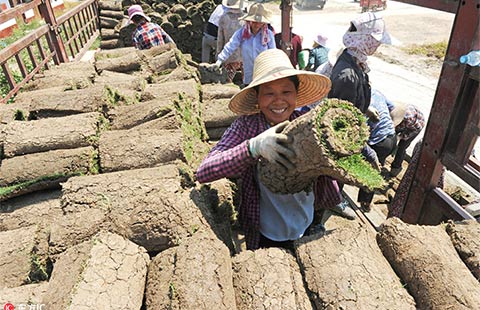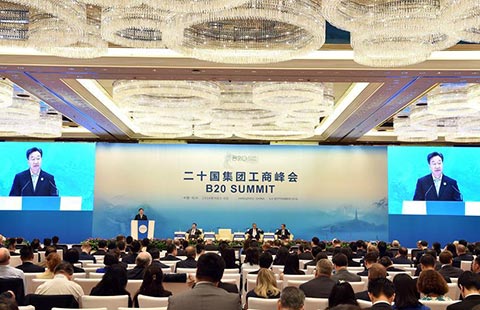Global financial safety net needs strengthening
By Wang Yanfei (China Daily) Updated: 2016-09-05 07:43The global financial safety net can hardly meet expectations, as "asymmetric and fragmented problems" loom large, International Monetary Fund Managing Director Christine Lagarde has said.
The global financial safety net, which was put in place after the financial crisis in 2008, is designed to help reduce risks while providing support to help countries to resolve any financial challenges or crises, using special funds as insurance.
Cao Yuanzheng, chief economist with Bank of China, said that the uneven coverage and policy implementation across countries point to the need for solutions to fix the net, especially its ability to tackle near-term economic challenges.
"Advanced economies are more protected by the safety net, while some emerging economies have no access to it or face higher costs in order to receive proper protection from the fund," he said.
Quota reviews and giving additional seats on the IMF Executive Board for the emerging markets and developing economies would help resolve the uneven problems.
This year's G20 Summit provides a platform for promoting dialogue across nations to seek ways to improve the financial safety net.
In the meantime, Asian countries are moving to establish a net at the regional level that will help resolve some problems, said Chen Fengying, a researcher with the China Institutes of Contemporary International Relations. "Issues such as how to provide better aid to the existing financial facilities will need time to see further improvement amid political resistance."
- Xi expects G20 Summit to offer remedies to world economy
- Xi urges efforts of BRICS to improve global governance
- President Xi's speech at B20 draws worldwide attention, comments
- China, other G20 members contribute to global financial governance
- Call for more digital banking to boost inclusive finance
- Infrastructure helps regional integration
- Technology can expand access to finance
- Five proposals to buttress global economic growth: Xi
- All eyes on Hangzhou Summit
- China's oil refineries running below 70% capacity
- French business leader sees opportunity for emerging countries
- Hangzhou summit offers opportunity to reinvigorate global economy: EU leaders
- Business bignames diagnose world economy, praise China's role

















